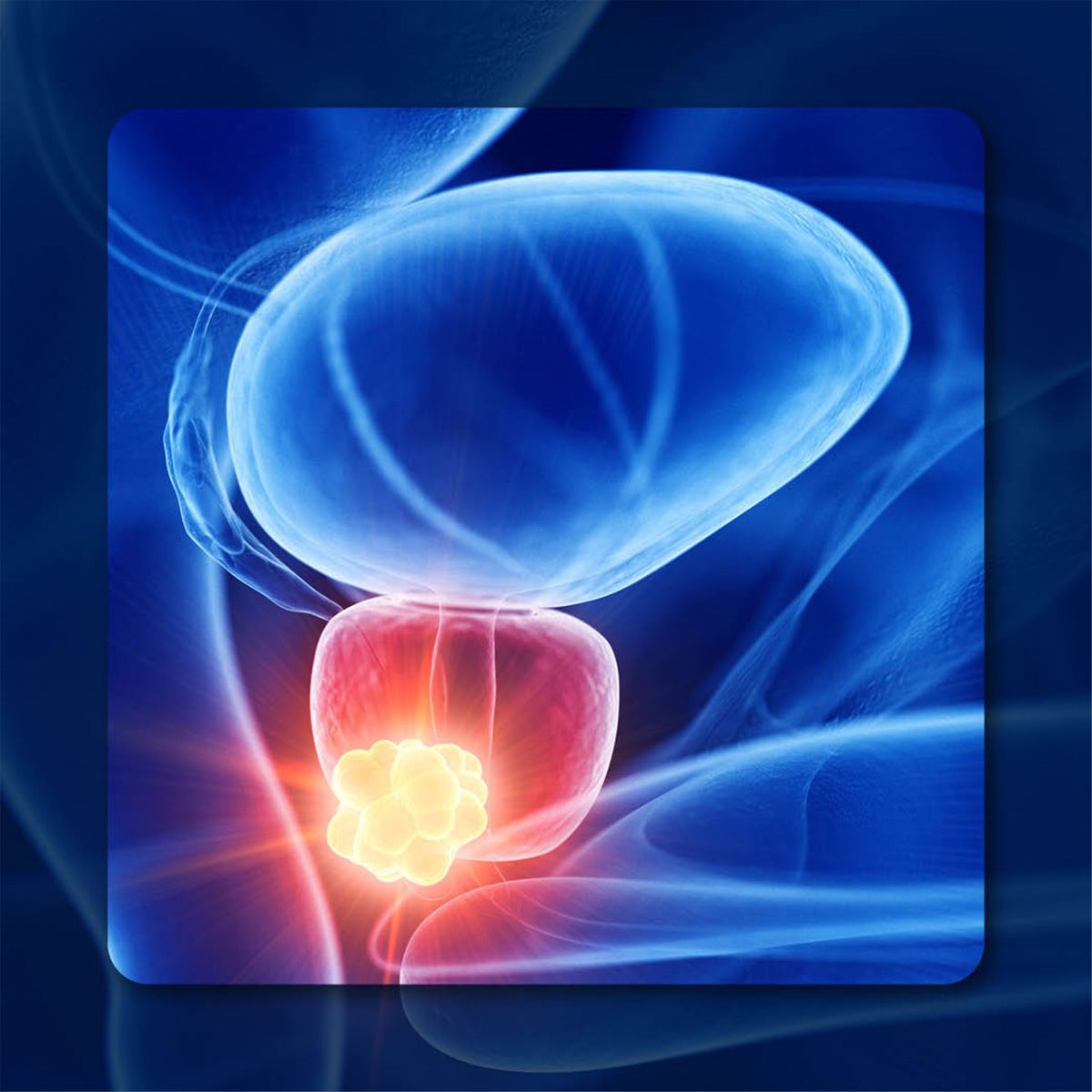News
Article
FDA Grants Orphan Drug Designation to IMM-1-104 for Pancreatic Cancer
Key Takeaways
- IMM-1-104 has shown promising results in pancreatic cancer, with a 40% ORR and 80% DCR in initial phase 2a data.
- The FDA granted orphan drug designation and fast track status to IMM-1-104 for pancreatic cancer treatment.
The FDA has granted orphan drug designation to IMM-1-104 for pancreatic cancer.
US FDA

The FDA has granted orphan drug designation to IMM-1-104 as a potential therapeutic option for patients with pancreatic cancer.1
The agent is currently being investigated in a phase 1/2a trial (NCT05585320) in patients with solid tumors harboring RAS mutations. Data from the phase 2a portion of the study announced in September 2024 showed that patients with pancreatic cancer (n = 5) treated in the frontline setting with IMM-1-104 in combination with modified gemcitabine and nab-paclitaxel (Abraxane) experienced an overall response rate (ORR) of 40% and a disease control rate (DCR) of 80%.2
Among those 5 patients, 1 achieved a complete response, and another had a partial response. Two patients had stable disease. The fifth patient had equivocal progressive disease; however, this patient was not dosed for over 2 weeks during hospitalization for a pre-existing condition, and new lesions identified by radiology were deemed by investigators to be related to the placement of a hepatic stent, not disease progression. All 5 patients were still on therapy at data cutoff.
“The FDA’s granting of orphan drug designation for IMM-1-104 underscores the urgent need for new therapies that meaningfully improve outcomes for [patients with] pancreatic cancer and represents an important milestone in the development of our lead asset,” Ben Zeskind, PhD, co-founder and chief executive officer of Immuneering, stated in a news release.1 “I believe our recently announced positive initial phase 2a data, from our arm investigating IMM-1-104 in combination with modified gemcitabine/nab-paclitaxel in pancreatic cancer, speaks to IMM-1-104’s potential to improve upon the current standard of care in this indication. Importantly, in the same trial, we are also studying IMM-1-104 in combination with modified FOLFIRINOX [oxaliplatin, irinotecan, leucovorin, and fluorouracil], [and as] monotherapy for pancreatic cancer. We look forward to providing initial data from at least 1 additional arm of the phase 2a portion of our phase 1/2a trial before the end of the year.”
The FDA previously granted fast track designation to IMM-1-104 in February 2024 for patients with pancreatic ductal adenocarcinoma (PDAC) who have progressed on 1 line of treatment and in July 2024 for the first-line treatment of patients with PDAC.3,4
The open-label, dose-exploration and -expansion phase 1/2a trial is enrolling patients at least 18 years of age. For the monotherapy portion in phase 1, patients need to have locally advanced, unresectable or metastatic solid tumors harboring a RAS activating mutation. Those included in the monotherapy portion of phase 2a must have locally advanced, unresectable or metastatic solid tumors including PDAC, RAS-mutant melanoma, or RAS-mutant non–small cell lung cancer (NSCLC). In both phases, IMM-1-104 is being evaluated in combination with chemotherapy in patients with locally advanced, unresectable or metastatic PDAC.5
In the monotherapy portion of phase 1, receipt of at least 1 prior line of standard systemic therapy for advanced or metastatic disease is required. Patients with PDAC or melanoma enrolled in the monotherapy portion of phase 2a are allowed to be treatment naive or previously treated; those with NSCLC included in phase 2a must have received 1 prior line of therapy but no more than 2 prior lines. Treatment-naive PDAC is required for enrollment in the combination cohorts.
Key inclusion criteria for all patients include measurable disease per RECIST 1.1 criteria, an ECOG performance status of 0 or 1, and adequate organ function.
In the monotherapy cohorts, oral IMM-1-104 is being given once per day in 28-day cycles until treatment discontinuation criteria are met. In the combination cohorts, the agent is being given once per day in 28-day cycles in combination with gemcitabine at 1000 mg/m2 and nab-paclitaxel at 125 mg/m2; or in combination with modified FOLFIRNOX comprised of folinic acid at 400 mg/m2, fluorouracil at 2400 mg/m2, irinotecan at 150 mg/m2, and oxaliplatin at 85 mg/m2.
The primary end points of phase 1 are safety, dose-limiting toxicities, and determining the recommended phase 2 dose. ORR is the primary end point of phase 2a. Pharmacokinetics are a key secondary end point in phase 1. Secondary end points of phase 2a include DCR, progression-free survival, duration of response, overall survival (OS), and 3- and 6-month OS rates.
References
- Immuneering granted orphan drug designation for IMM-1-104 by FDA in the treatment of pancreatic cancer. News release. Immuneering. October 15, 2024. Accessed October 15, 2024. https://ir.immuneering.com/news-releases/news-release-details/immuneering-granted-orphan-drug-designation-imm-1-104-fda
- Immuneering announces positive initial phase 2a data including complete and partial responses with IMM-1-104 in combination with chemotherapy in first-line pancreatic cancer patients. News release. Immuneering. September 12, 2024. Accessed October 15, 2024. https://ir.immuneering.com/news-releases/news-release-details/immuneering-announces-positive-initial-phase-2a-data-including
- Immuneering receives FDA fast track designation for IMM-1-104 in pancreatic cancer. Immuneering Corporation. February 20, 2024. Accessed October 15, 2024. https://ir.immuneering.com/news-releases/news-release-details/immuneering-receives-fda-fast-track-designation-imm-1-104
- Immuneering granted FDA fast track designation for IMM-1-104 in first-line pancreatic cancer. News release. Immuneering. July 31, 2024. Accessed October 15, 2024. https://ir.immuneering.com/news-releases/news-release-details/immuneering-granted-fda-fast-track-designation-imm-1-104-first
- A phase 1/2a study of IMM-1-104 in participants with previously treated, RAS-mutant, advanced, or metastatic solid tumors. ClinicalTrials.gov. Updated August 21, 2024. Accessed October 15, 2024. https://clinicaltrials.gov/study/NCT05585320





%20u.jpg?fit=crop&auto=format)

%20(2)%201-Recovered-Recovered-Recovered-Recovered-Recovered-Recovered-Recovered-Recovered-Recovered-Recovered-Recovered-Recovered-Recovered-Recovered-Recovered-Recovered-Recovered-Recovered-Recovered.jpg?fit=crop&auto=format)
%20(2)%201-Recovered-Recovered-Recovered-Recovered-Recovered-Recovered-Recovered-Recovered-Recovered-Recovered-Recovered-Recovered-Recovered-Recovered-Recovered-Recovered-Recovered-Recovered-Recovered.jpg?fit=crop&auto=format)